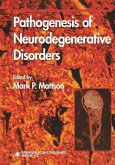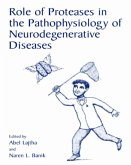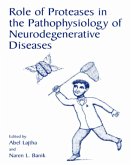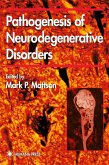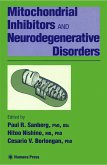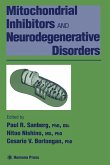With the unprecedented identification of new mutation mechanisms in neurodegenerative diseases and the emergence of common mechanisms among diseases that were once considered unrelated, neurobiologists are poised for the development of new therapies based on high throughput screenings and a better understanding of the molecular and cellular mechanisms leading to neurodegeneration. In Molecular Mechanisms of Neurodegenerative Diseases, Marie-Francoise Chesselet, MD, PhD, and a panel of leading researchers and neurologists from industry and academia critically review the most recent advances from different yet complementary points of view. Focusing on Alzheimer's, Parkinson's, and CAG triplet repeat diseases, the authors show how studies of cellular and genetically engineered animal models have enhanced our understanding of the molecular mechanisms of neurodegenerative diseases and may lead to the development of new therapeutics. Topics include the role of Ab toxicity, glial cells,and inflammation in Alzheimer's disease; the formation of abnormal protein fragments across several diseases, the impact of dopamine and mitochondrial dysfunction on neurodegeneration; and the potential of genetics to identify the molecular mechanisms of neurodegenerative diseases.
Authoritative and insightful, Molecular Mechanisms of Neurodegenerative Diseases synthesizes the novel ideas and concepts now emerging to create a fresh understanding of neurodegenerative disorders, one that promises to lead to powerful new therapies that prevent, delay the onset, slow the progression, or even cure these cruel diseases.
Authoritative and insightful, Molecular Mechanisms of Neurodegenerative Diseases synthesizes the novel ideas and concepts now emerging to create a fresh understanding of neurodegenerative disorders, one that promises to lead to powerful new therapies that prevent, delay the onset, slow the progression, or even cure these cruel diseases.
"The reviews are well-written and well-edited so that they are accessible to both the researcher and non-researcher. The reviews examine a variety of current hypotheses as to the nature of neurodegeneration in a variety of conditions. . .This is a well-written book. Although no clear answers emerge, it shows the power of modern molecular methods in examining the underlying basis of these long baffling neurodegenerative disease. The practicing neurologist can only marvel at the power of the new molecular techniques that will soon reveal the underlying molecular basis of these disorders. This book clearly conveys the exciting advances that have already been made and hints at the advances that loom around the corner."-Doody's Health Sciences Book Review Journal



